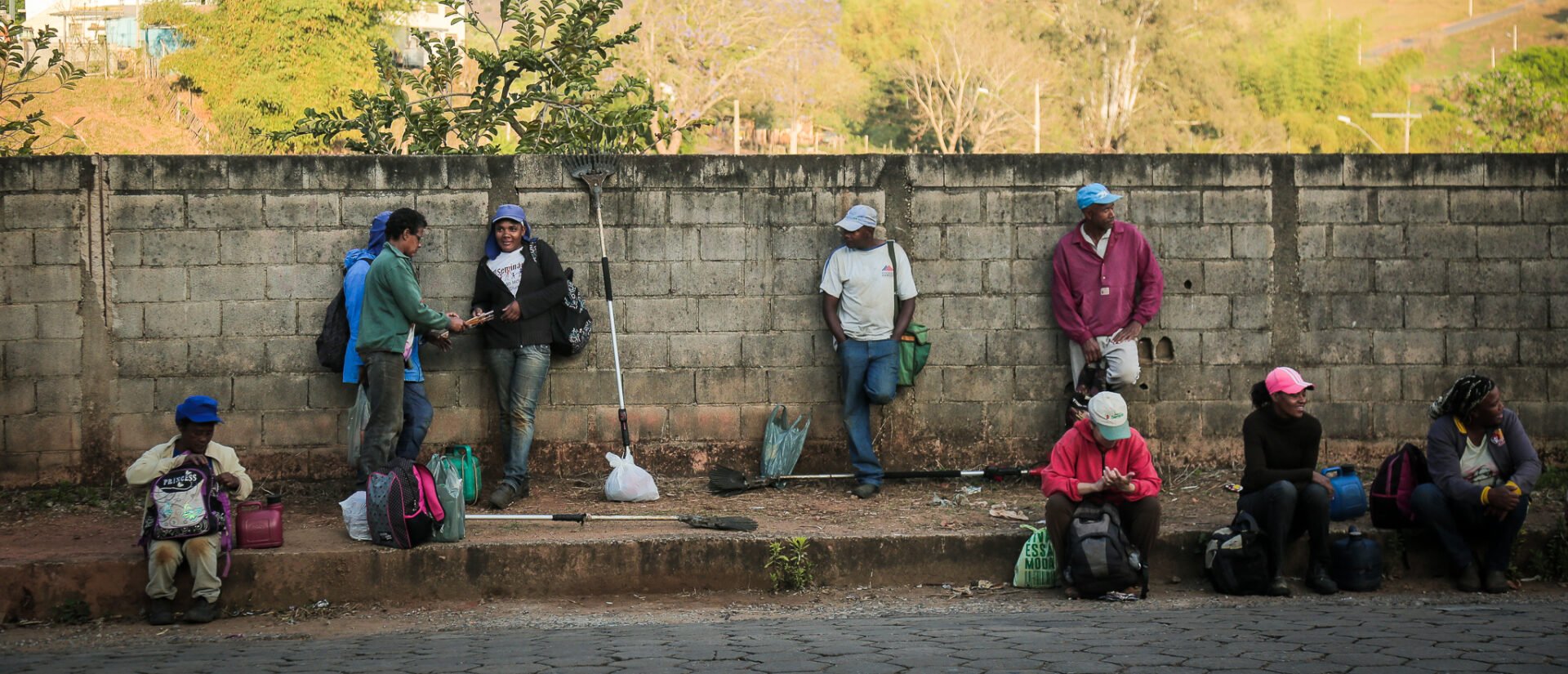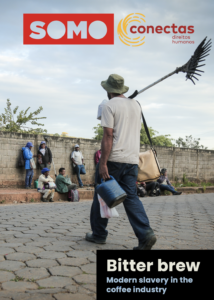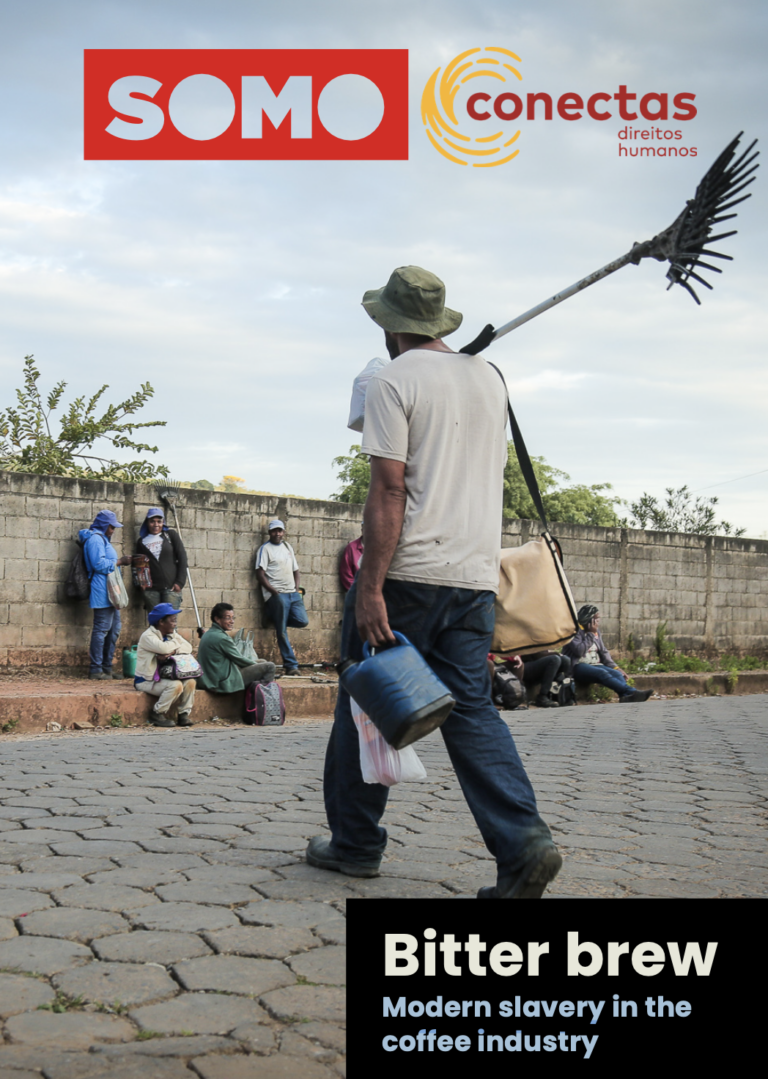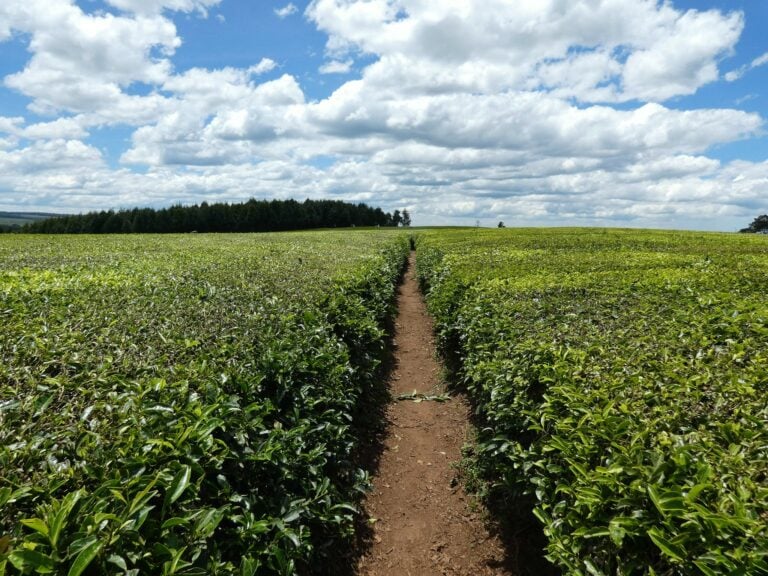
Modern slavery is still lurking in your coffee cup
Despite repeated promises from coffee multinationals to do better, their supply chains are still riddled with cases of modern slavery. As shown in a new analysis by SOMO and Conectas, this dark reality is particularly evident in Brazil, the world’s leading coffee producer. Brazil’s coffee workers are subject to forced labour, debt bondage, abysmal working conditions, and other forms of exploitation.
All the coffee giants featured in the briefing have embraced voluntary due diligence and certification schemes. These schemes, which involve audits, monitoring, and certification of suppliers, are intended to ensure that labour standards are upheld throughout the supply chain.
-
 Bitter brew (pdf, 4.61 MB)
Bitter brew (pdf, 4.61 MB)
The failure of voluntary mechanisms
Abuses documented over the years in the supply chains of Nestlé, JDE, Illy, Dunkin’ Donuts, McDonald’s, and Starbucks show that these voluntary standards, touted as safeguards against human rights abuses, are just not up to the job. They either fail to sufficiently detect labour abuses or are easily circumvented by unscrupulous employers.
Victims of modern slavery seeking redress through voluntary grievance mechanisms such as National Contact Points (NCPs) for the OECD Guidelines have seen their attempts smothered in frustration, with cases either being closed without remedy or simply ignored by the companies without any consequences. Like the NCPs in many other countries, the Brazilian NCP is plagued by a lack of transparency, limited ability to compel corporations to take action, and failure to provide meaningful access to remedy for victims.
The case for mandatory due diligence
The persistence of modern slavery on Brazilian coffee plantations demonstrates the need to strengthen binding legal and regulatory frameworks on due diligence and forced labour.
In the European Union, where many coffee multinationals are headquartered, we have recently seen some positive developments to improve corporate accountability in global supply chains, with a breakthrough in the negotiations on the Corporate Sustainability Due Diligence Directive (CSDDD) and progress on the proposed Forced Labour Regulation(opens in new window)
(FLR). Both instruments still face threats due to corporate lobby attempts to weaken them.
Modern slavery is not just a reputational risk to be managed; governments and companies have a legal and moral obligation to eradicate it. If finally adopted, implemented and monitored, legislation such as the CSDDD and FLR would create a level playing field by forcing all companies to prioritise the environment and well-being of workers in their supply chains and now allow the “laggards” to profit from unfair competition and human rights abuse as they hide behind meaningless certifications and voluntary initiatives.
Do you need more information?
-

Joseph Wilde-Ramsing
Advocacy Director
Related news
-
Bitter brew Published on:Posted in category:Publication

-
 Unilever under UN investigation for denying remedy to victims of violence at its plantationPosted in category:News
Unilever under UN investigation for denying remedy to victims of violence at its plantationPosted in category:News Lydia de LeeuwPublished on:
Lydia de LeeuwPublished on: -





